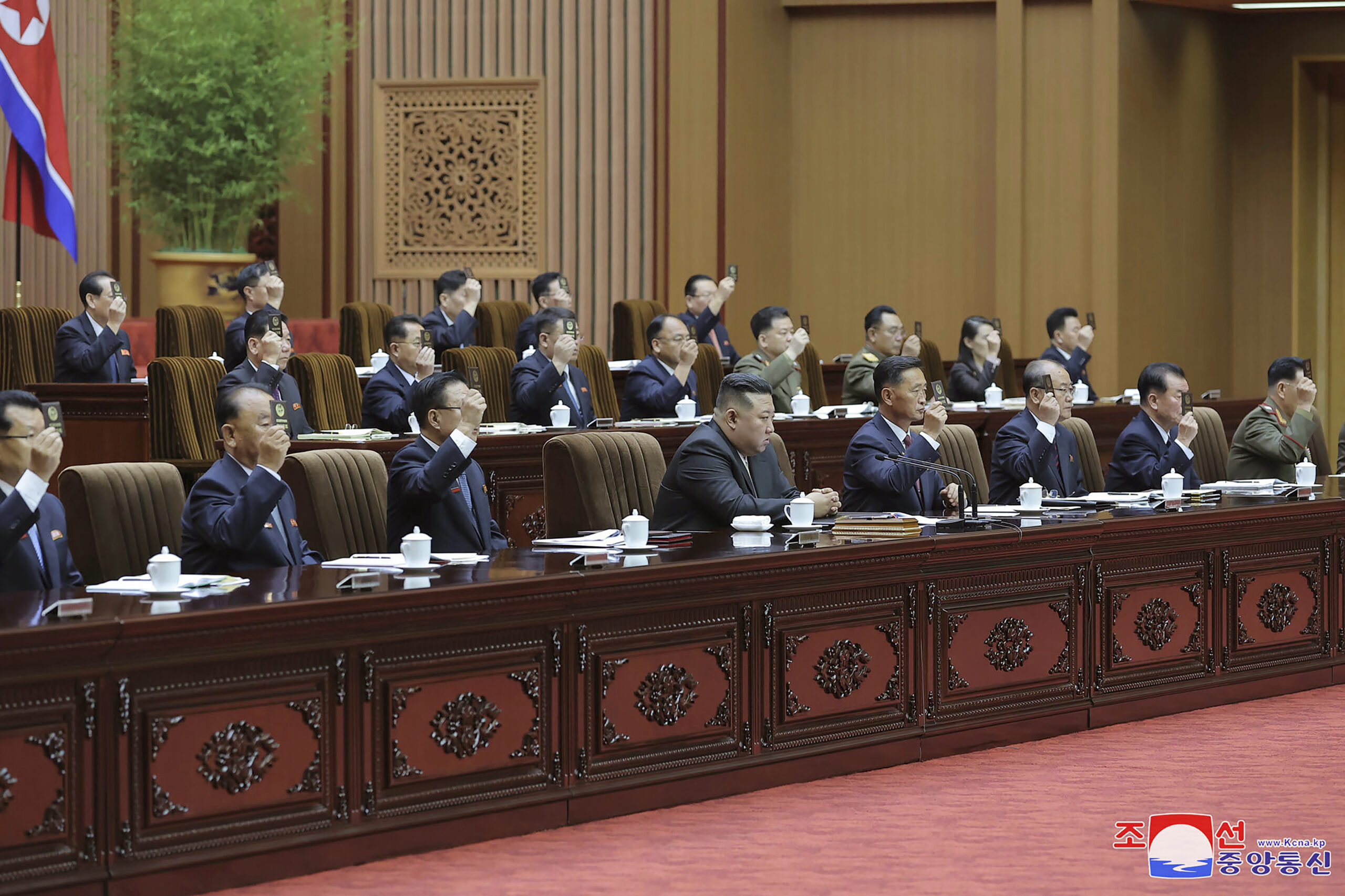North Korean leader Kim Jong Un called for an exponential increase in production of nuclear weapons and for his country to play a larger role in a coalition of nations confronting the United States in a “new Cold War,” state media said Thursday.
The Korean Central News Agency said Kim made the comments during a two-day session of the country’s rubber-stamp parliament which amended the constitution to include his policy of expanding the country’s nuclear weapons program.
The Supreme People’s Assembly’s session on Tuesday and Wednesday came after Kim traveled to Russia’s Far East this month to meet with Russian President Vladimir Putin and visit military and technology sites.
The trip sparked Western concerns about a possible arms alliance in which North Korea would supply Putin with badly needed munitions to fuel his war on Ukraine in exchange for economic aid and advanced Russian technologies to enhance North Korea’s nuclear and missile systems.
As North Korea slowly ends its pandemic lockdown, Kim has been actively boosting his partnerships with Moscow and Beijing as he attempts to break out of diplomatic isolation and join a united front against Washington. He has described the world as entering a “new Cold War” and that North Korea should advance its nuclear capabilities in response.
KCNA’s reports on Kim’s comments came a day after North Korea c onfirmed the release of U.S. Army Pvt. Travis King, who is now being flown back to America, two months after he sprinted across the heavily fortified border into the North.
King’s relatively swift expulsion defied speculation that North Korea might drag out his detention to squeeze concessions from the United States, and possibly reflected the North’s disinterest in diplomacy with Washington.
KCNA said members of the assembly gave unanimous approval to a new clause in the constitution to “ensure the country’s right to existence and development, deter war and protect regional and global peace by rapidly developing nuclear weapons to a higher level.”
North Korea’s “nuclear force-building policy has been made permanent as the basic law of the state, which no one is allowed to flout with anything,” Kim said in a speech at the assembly. He stressed the need to “push ahead with the work for exponentially boosting the production of nuclear weapons and diversifying the nuclear strike means,” KCNA said.
Kim pointed to what he described as a growing threat posed by a hostile United States and its expanding military cooperation with South Korea and Japan, accusing them of creating the “Asian version of NATO, the root cause of war and aggression.”
“This is just the worst actual threat, not threatening rhetoric or an imaginary entity,” he said.
Kim urged his diplomats to “further promote solidarity with the nations standing against the U.S. and the West’s strategy for hegemony.”
South Korea’s Unification Ministry, which handles relations with North Korea, said the North Korean constitutional amendment confirms Kim’s unwillingness to relinquish his nuclear weapons program and his unwavering commitment to advancing that arsenal. It said in a statement that South Korea will continue to expand its military cooperation with the U.S. and Japan and work closer with other international partners to increase pressure on North Korea to abandon its nuclear ambitions.
Tensions on the Korean Peninsula are at their highest level in years as North Korea has test-fired more than 100 missiles since the start of 2022 and the U.S. has expanded its military exercises with its Asian allies, in tit-for-tat responses.
Last year, the assembly passed a new nuclear doctrine into law which authorizes pre-emptive nuclear strikes if North Korea’s leadership is perceived as under threat.
(AP)












One Response
If the Chinese are good people, then why do they support brutal North Korea and hyper-aggressive Russia, and co-operate with terrorist genocidal Iran?
Chinese people appear to be polite and intelligent and hard-working on the outside; but on the inside, they are selfish and greedy and cruel and despise foreigners.